John Cleese, 84, reflects on ‘literal-minded’ people at Fawlty Towers play
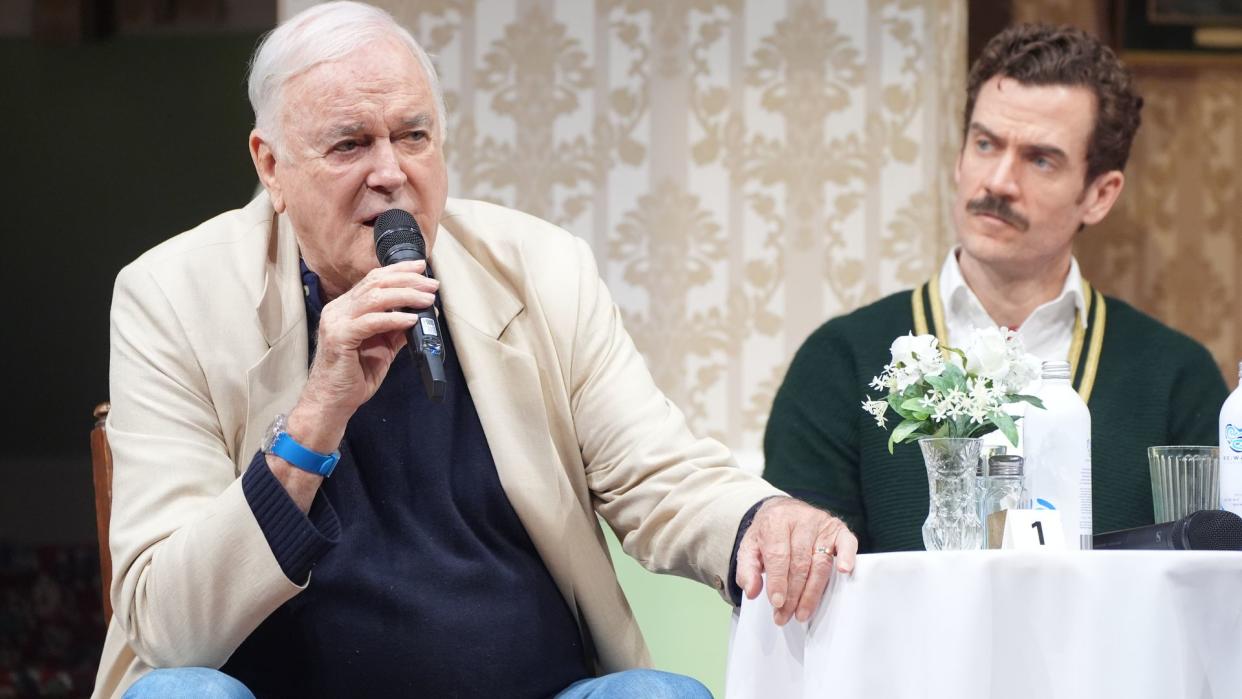
John Cleese, 84, has spoken on the consequences of oversensitivity at an exclusive performance of his new Fawlty Towers play.
It’s 10:30 am, and I’m one row from the front of the Apollo Theatre on London’s Shaftesbury Avenue. To my right, in a royal box shared with a couple of inconspicuous-looking cameramen, sits John Cleese.
The comedy giant is here for the media launch of his new Fawlty Towers play, and will soon be answering questions from host Johnny Vaughn. Before that, though, the cast of the production have the nerve-wracking challenge of performing two scenes from the show, in front of the very man who first brought Basil Fawlty to life almost 50 years ago.
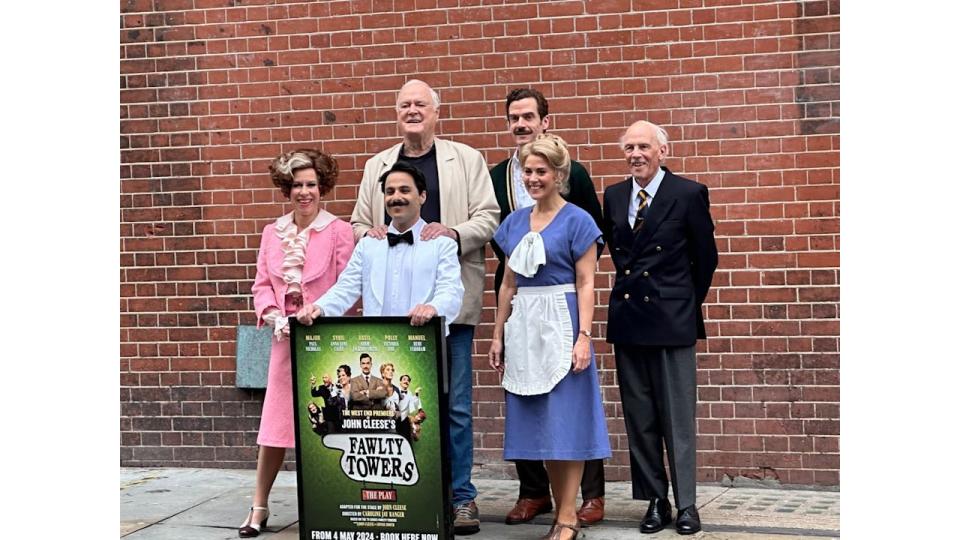
Fawlty Towers preview review
If nerves are bubbling under the surface, they don’t show. Adam-Jackson Smith makes a brilliant Basil, all repressed stress and hopping frustration. Anna-Jane Casey effortlessly masks her native northern accent with Sybil Fawlty’s trademark brand of put-on-posh. Hemi Yeroham gets the biggest laughs as the lovably inept Manuel, looking bemused and saying “Si” to everything with wonderful comic timing.
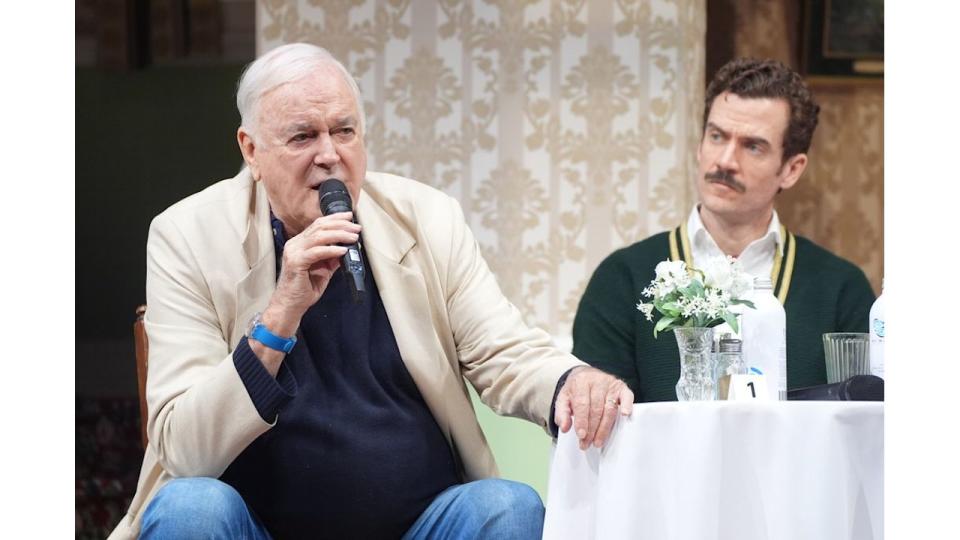
Victoria Fox perfectly captures the essence of long-suffering housemaid Polly, bringing an air of composure amid the chaos. The core cast are joined by a variety of supporting players, including three would-be hotel inspectors, as well as Major Gowen, played with palpable condescension by Paul Nicholas.
The decision to include the Major won’t please everyone, and while Cleese stresses people are expected to “laugh at him, not with him”, the racial slurs from the original show have nevertheless been removed from the play.
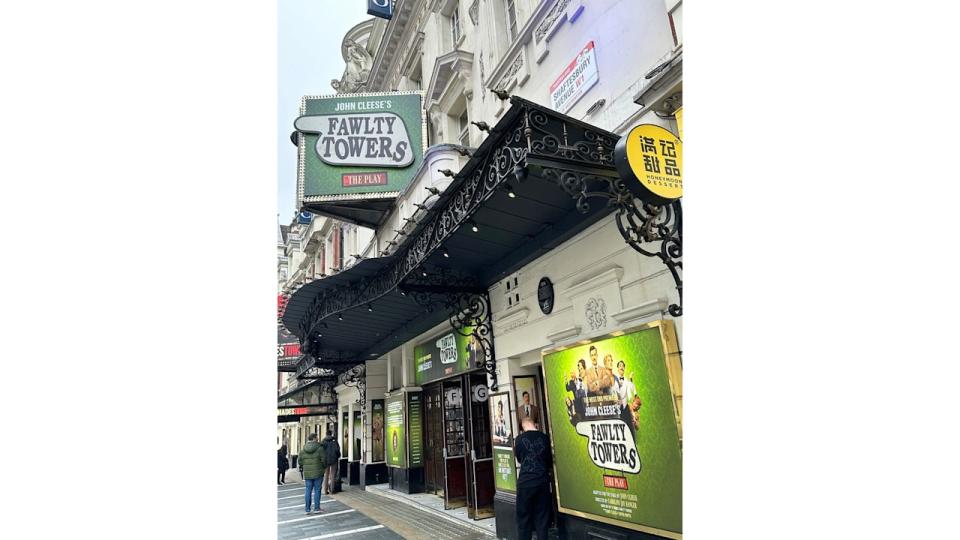
The classic episode satirising post-war Britain’s aversion to all things German, however, is very much still here, and Cleese, along with director Caroline Jay Ranger, has opted to keep in the most memorable - and arguably controversial - moments, including Basil’s cry of “don’t mention the war” and subsequent goose-stepping.
When asked by a reporter why he decided to include these scenes in the play, Cleese is clear: “Every film I saw when I was young always seemed to be a war film, and Germans were always portrayed as Nazis”.
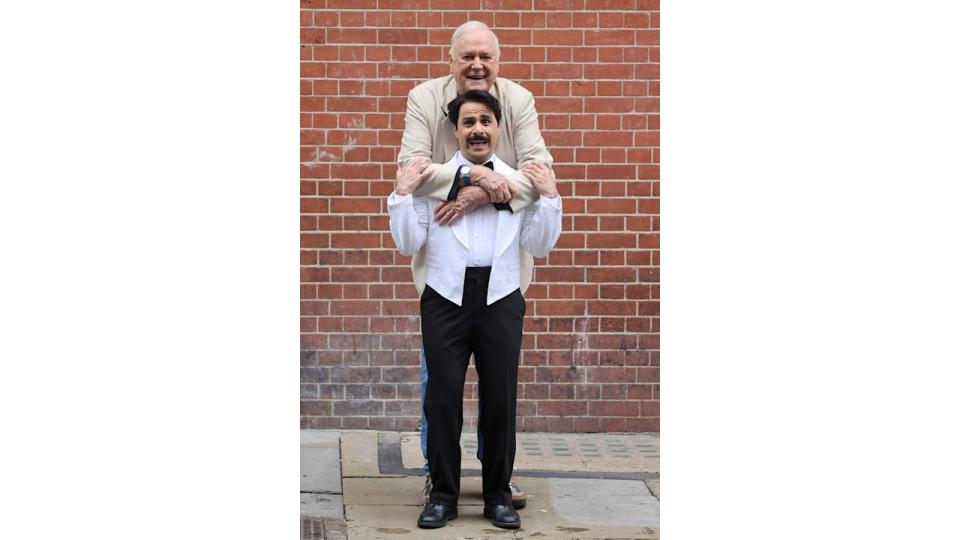
By having Basil Fawlty make a fool of himself as a result of such prejudice, Cleese and his writing partner, co-star and former wife Connie Booth were mocking this attitude, disarming it in the process. Not everyone can see that, though, and it’s obvious this infuriates Cleese.
What does he think of old sitcoms like his being ‘cancelled’?
“There’s been too much change”, he declares. “Everyone is getting very anxious, and people behave in a ratty sort of way and more likely to become more literal-minded”.
By literal-minded, he’s referring to those who feel that any art which features characters with bigoted views is therefore bigoted itself. As a comedy writer, he finds the implications of this deeply troubling.
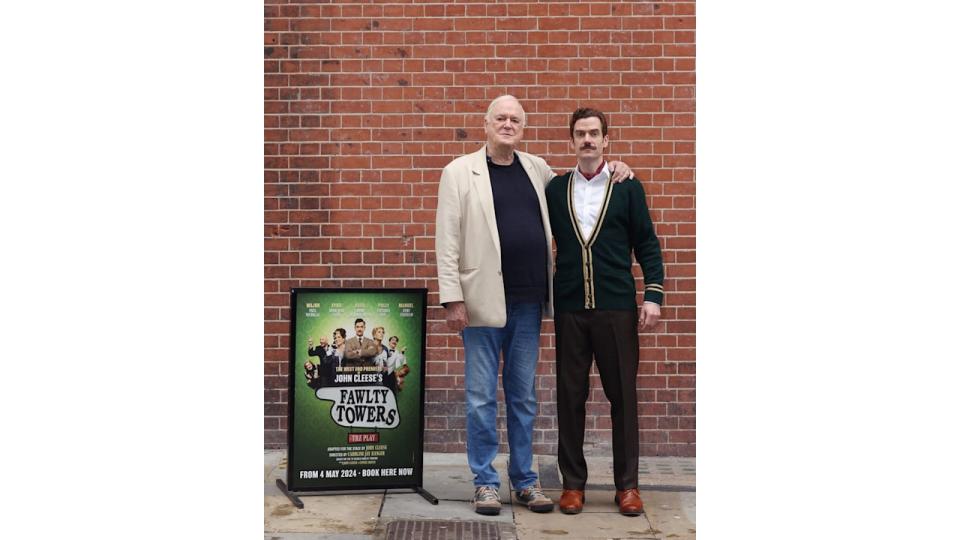
“Literal-minded people don’t understand metaphor, irony, or comic exaggeration”, he explains. “And that means if you take them seriously you get rid of a lot of comedy”. Judging by the glowing reception to the play, people haven’t lost their sense of humour just yet.
Fawlty Towers The Play begins previews on Saturday (4 May). Tickets are available to buy here.
Report by Ben Left



